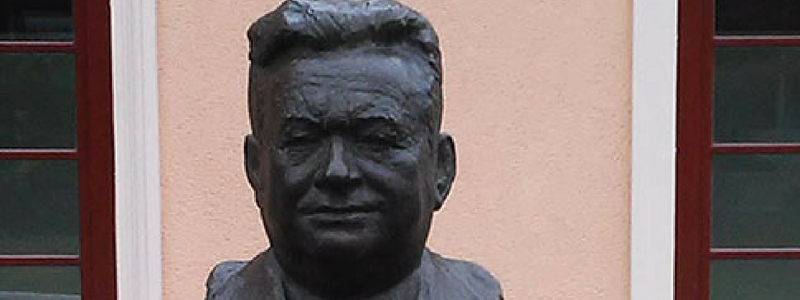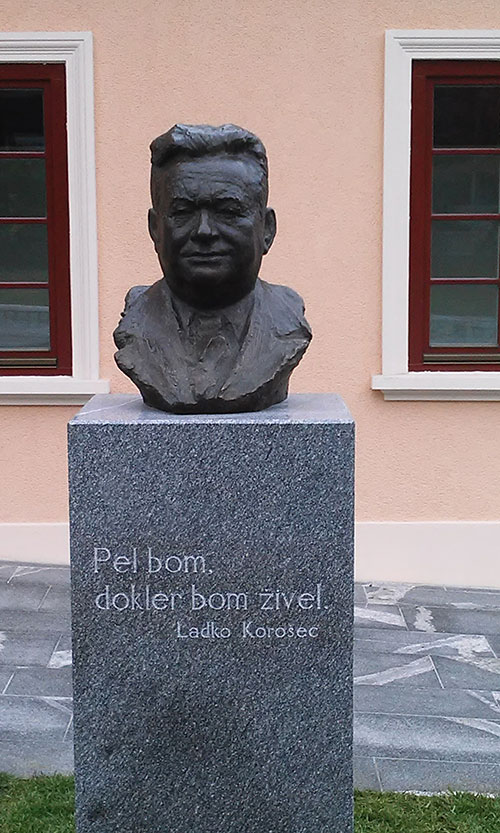On 24 September 2015, marking the 95th anniversary of the birth and the 20th anniversary of the death of Ladko Korošec, the Municipality of Zagorje published a book, Ladko Korošec – Življenje umetnika (Ladko Korošec – The Life of an Artist), on the initiative of the Ladko Korošec Foundation. Additionally, his statue was erected on this occasion in front of the Weinberger House. The statue was included in the collection of items entrusted to the Foundation by the singer’s heirs, his son Dr Ladko Korošec and daughter Manja Iskra. The sculpture was previously kept in the director’s office of the KC Delavski dom Zagorje cultural centre.
Ladko Korošec
An internationally renowned bass opera singer, Ladko Korošec (1920–1995) carved out a distinguished operatic career, pursuing an artistic path that led him from the Ljubljana, Zagreb and Belgrade opera houses to international music hubs.
Korošec was born in Zagorje ob Savi, the fifth son in a mining family. His father was musically talented and active as a long-standing bandleader of a miners’ band. Ladko attended primary school in Zagorje and, in 1930, his brother Veko first took him to Ljubljana, to take the entrance examination for a technical high school. When taking up musical studies in Ljubljana, it soon became evident that he had inherited his father’s talent. In addition to being a gifted singer, he distinguished himself as an excellent actor, which greatly enhanced his operatic roles.
He studied solo singing with the eminent Julij Betetto, and honed his skills by pursuing additional studies at drama school and performing in amateur theatres. He was a member of the company at the Drama National Theatre in Ljubljana. However, his strong suit was operatic roles, most notably Don Pasquale in the eponymous opera, Kecal (The Bartered Bride), Don Bartolo (The Barber of Seville), Štrukelj (The Nightingale of Gorenjska), Varlaam (Boris Godunov), Leporello (Don Giovanni), Skula (Prince Igor), King of Clubs (The Love for Three Oranges), and Prince Khovansky (Khovanshchina). His most widely heralded and internationally acclaimed appearance was in Massenet’s Don Quixote, an opera that also featured bass Miroslav Čangalović. Korošeč performed in recitals, and toured the operatic hubs of Europe, Africa, Asia and the US with ensembles of the Ljubljana, Zagreb and, primarily, Belgrade opera houses. His appearances included venues in the Antarctic and Australia.
He received several Prešeren Awards for the roles of Don Pasquale and Sancho Panza, as well as his overall singing career (1949, 1959, 1978). In 1988, he received the Betetto Award, a prestigious Slovenian award presented by the Slovenian Music Artists’ Association for artistic music achievements.
Korošec recorded his memoirs of international tours in Na tista lepa pota (Going on Those Lovely Trips), a book that clearly reveals the singer’s intimate attachment to his native Zagorje and the local miners’ choirs, where, according to Korošec, his singing career first took shape.
Maia Juvanc

